Estimates for replacing Gas Boiler, Steam Heat
Just learned that we need to replace our boiler. We have 2 quotes in hand from reliable, local companies. One of the estimates is detailed while the other is not. The cost differential is significant but I don't want to make a decision based only on price.
Some questions:
1. Difference between a Utica, Burnham or Peerless as a brand - does it matter?
2. One recommends a 262,000 BTU; one does not focus on BTUs. Importance of BTU when assessing which boiler?
3. What is the approximate cost for a permit to replace a boiler?
4. How likely is it that the chimney lining will need replacement after a new install?
5. What else should we take into account when reviewing the proposals?
shestheone said:
Just learned that we need to replace our boiler. We have 2 quotes in hand from reliable, local companies. One of the estimates is detailed while the other is not. The cost differential is significant but I don't want to make a decision based only on price.
Some questions:
1. Difference between a Utica, Burnham or Peerless as a brand - does it matter?
2. One recommends a 262,000 BTU; one does not focus on BTUs. Importance of BTU when assessing which boiler?
3. What is the approximate cost for a permit to replace a boiler?
4. How likely is it that the chimney lining will need replacement after a new install?
5. What else should we take into account when reviewing the proposals?
1. Utica is a "builder's grade" boiler which means it's the cheapest constructed of the ones you mentioned. It leaves all the important electronic controls outside the protection of the sheet metal jacket unlike Burnham, Peerless, and Weil-McLain. Peerless uses lager pipe sizes than Burnham so it's slightly more costly for the contractor to install, but it's to good effect. Burnham has somewhat greater availability in our area for replacement and service parts.
2. BTUs are not a good gauge for steam boiler output, compatibility to your home, or energy usage. Good steam installers know this, but they may quote you the BTUs just to give you a comparison tool.
3. It's cheap. Don't know offhand. My brother, David, does though.
4. 60/40 in your favor. Most chimneys have a terra cotta lining or something else that leave them perfectly serviceable for your new boiler. Venting into brick and mortar is not good. Those need to be relined.
5. Materials used for assembling the boiler. You want threaded steel pipe with cast iron or black malleable fittings. Follow-up service policies. Installers' warranties.
Just had a new gas boiler installed in August (model/brand is Williamson). Got a few quotes; we were converting from oil to gas. I would get in touch with Fischetti Plumbing for a quote, which is who we used. 973-762-2759. We've been pleased with their service over the years re: plumbing needs. As far as chimney relining, I would absolutely go with Prato from Bloomfield. BTU's are determined by the number of radiators, I believe. Feel free to PM.
cats said:
Just had a new gas boiler installed in August (model/brand is Williamson). Got a few quotes; we were converting from oil to gas. I would get in touch with Fischetti Plumbing for a quote, which is who we used. 973-762-2759. We've been pleased with their service over the years re: plumbing needs. As far as chimney relining, I would absolutely go with Prato from Bloomfield. BTU's are determined by the number of radiators, I believe. Feel free to PM.
The piping on that boiler is completely wrong. Take a look at the installation manual. The way the steam leaves and travels through that first set of pipes immediately after the boiler is a very specific, purposeful, and deliberate configuration. That has to be redone or you're burning fuel to make steam that doesn't reach your radiators.
master_plvmber, can you be a little more specific because that's a strong statement and worrisome, at that, if indeed the configuration is totally incorrect. Obviously, I'm not equipped to understand the installation manual! Perhaps there are other parts of my photo you cannot view. It's not like it's the first boiler installation that the plumber has ever done... PM me if you can explain further.
Don't shop for a boiler. Shop for a plumber, and let the plumber decide which brand boiler to use.
Hi cats, I'm not a plumber, but I do understand this stuff, so I thought I would chime in and let Master Plumber slice me up later if I make a mistake. Newer boilers are smaller than old boilers, so the piping near the boiler is a critical part of the system because it allows rising steam to shed excess moisture. I'm attaching a picture of a typical Hartford loop. This is what is missing from your system.
Cats - you need help. Go here for starters..https://forum.heatinghelp.com/categories/strictly-steam
FilmCarp said:
Hi cats, I'm not a plumber, but I do understand this stuff, so I thought I would chime in and let Master Plumber slice me up later if I make a mistake. Newer boilers are smaller than old boilers, so the piping near the boiler is a critical part of the system because it allows rising steam to shed excess moisture. I'm attaching a picture of a typical Hartford loop. This is what is missing from your system.
No slicing up, FilmCarp. I don't see the side of the boiler where the Hartford Loop would be so I'm not sure what's going on there. What I do see is the absurd reduction of pipe diameters where the house's return piping connects to that new copper piping. I see the lack of "steam header" found on every steam boiler where the piping rises from the boiler and leads directly to an elbow for a very necessary change from vertical to horizontal direction. It's at that horizontal change that water and steam are able to effectively separate from each other. The header must then include all the tees that provide steam to the one or two supply risers out to the long horizontal mains that traverse the basement. The manual for this Williamson boiler, the low cost line of products distributed by Weil-McLain for the builders' market, shows all the minimum acceptable pipe sizes. After 100,000 BTUs, they require a full 2-1/2" header, then terminating to another change in direction from horizontal back to vertical with a reducing elbow going from 2-1/2" to 1-1/2". Here they used 2" pipe (off by one pipe size) and 1" pipe (off by two pipe sizes). Not even meeting the minimum recommended pipe diameters. Mind you, each pipe diameter change is equal to a nearly 100% change in volume. This change of direction is called the "equalizer" pipe and it is very necessary for adding pressure to the return to keep the water in the boiler while it is running at full pressure. The pictures posted show a tee where an elbow should be, an undersized and ineffective header and equalizer, and several misplaced tees, one of them with plugs in one side which will serve only to trap water causing unwanted pooling. Water pooling in a steam system is bad situation number one. I could go on but instead, I'll leave it to anyone else who wants to look at page 11 from the Piping section of the installation manual. The left-side illustration is the one that applies to the installation here.
Great explanation. I'll ask one more question: don't you need a permit for a new boiler? That should not have passed an inspection.
Yes. You need a permit but there is a disconnect at times. Not all plumbing inspectors know what they're looking at when it comes to heating. I'm not saying that's what happened there, just that some things get by some inspectors some times. No idea if a permit was pulled there.
I have addressed this and will see whether changes are needed. Thanks for the input. I do believe this is a Hartford loop.
I am glad you are addressing it. Don't let that plumber fool you. What he did is not correct. Master Plumber not only gave great information, he actually gave you the specific instructions for that boiler.
Re: inspectors.
My Mom in Millburn had a furnace installed. It was installed by a company in Summit.
4 years ago, problem after problem with the system. It was clear that the installer had no idea what he was doing. I called three separate plumbers. They came in, monkeyed around and put their stickers on the unit and left.
Still not working. General response --" You need a new boiler." Boiler was 8 years old.
On recommendation, I called a plumber from Basking Ridge. First thing he noticed is unsupported pipes hanging loose at ceiling level. “Inspector should not have approved these.”
Then he says, if i want, he can call tech support in Canada and get their input. He would have to charge me for the telephone time in addition to the repair.
I agreed to this.
He took the boiler apart and texted photos to Canada.
Next day, working fine. It worked fine until the house was sold last year.
As far as I know, it’s still working well for the new owners.
Later, there were electrical conditions that needed to be certified for the buyer. Inspector comes in - “panels were put in years ago (1964 to be exact). I have no idea how these were installed and that inspector retired years ago. We don’t keep records that far back. You’re good to go.”
Moral of the story: not all inspectors are competent or maybe some don’t even care.
Add on to your moral of the story. Inspectors are not what you think. Yes, they catch some stuff. But, if they miss some major thing, Oh well. The Town is not responsible. The inspector is looking for public Safety items, not proper plumbing installations.
Sue in Civil Court if you need to.
Seriously, I have run across this more than a few times.
Would homeowner's insurance cover a cracked boiler (that the plumber says was improperly installed 18+ years ago)?
shestheone said:
Would homeowner's insurance cover a cracked boiler (that the plumber says was improperly installed 18+ years ago)?
I doubt it. Even if they did it would be prorated , you would have a deductible, and your rates would increase
shestheone said:
Would homeowner's insurance cover a cracked boiler (that the plumber says was improperly installed 18+ years ago)?
What the matter with you? Its an insurance company. You put in the claim and after they finish pro-rating the 18 year depreciation, you would owe them $350.
Formerlyjerseyjack said:
shestheone said:What the matter with you? Its an insurance company. You put in the claim and after they finish pro-rating the 18 year depreciation, you would owe them $350.
Would homeowner's insurance cover a cracked boiler (that the plumber says was improperly installed 18+ years ago)?
What he said. The precise lingo is Actual Cash Value = What it costs to replace less depreciation.
Now upon buying a new boiler you can endorse your policy to cover replacement cost, for a fee of course. If something goes wrong 20 odd years later they will replace it. I suspect the extra premium over 20 years would prob buy a couple new boilers but hey that’s why they’re in business.






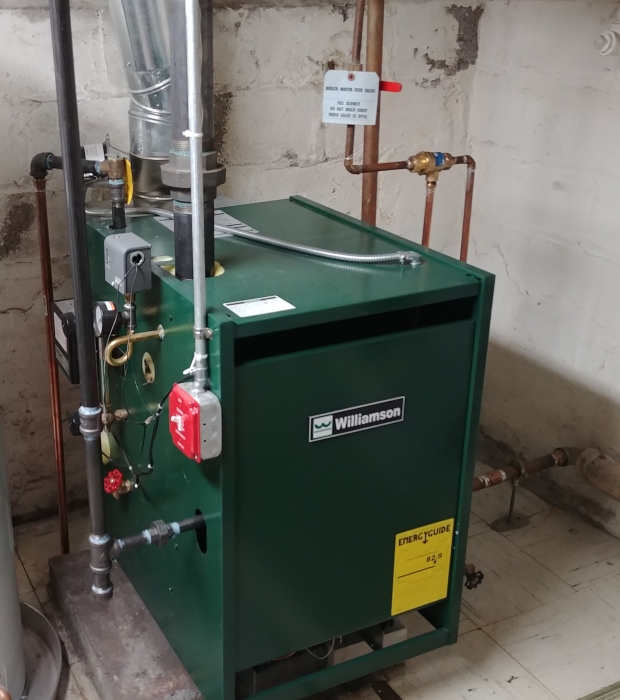
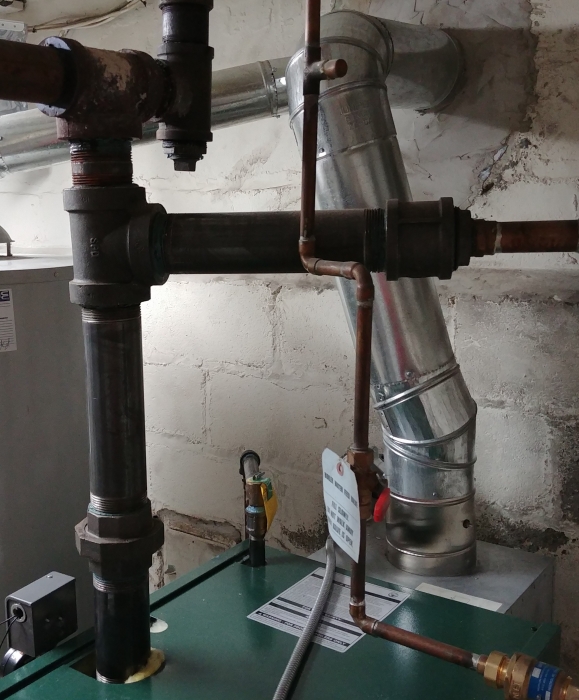



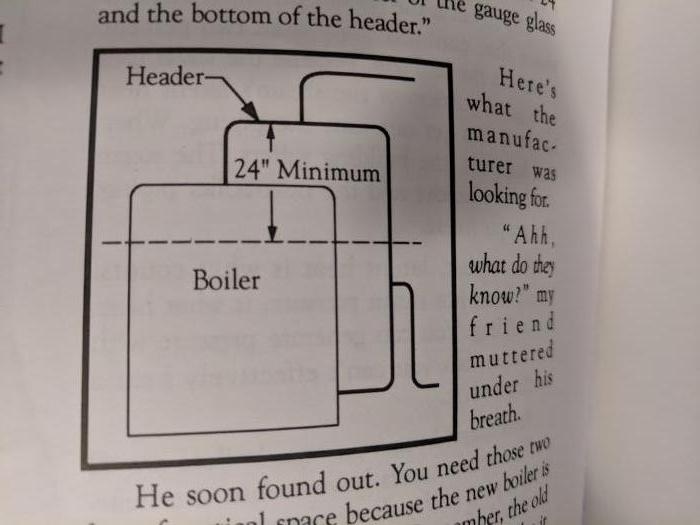


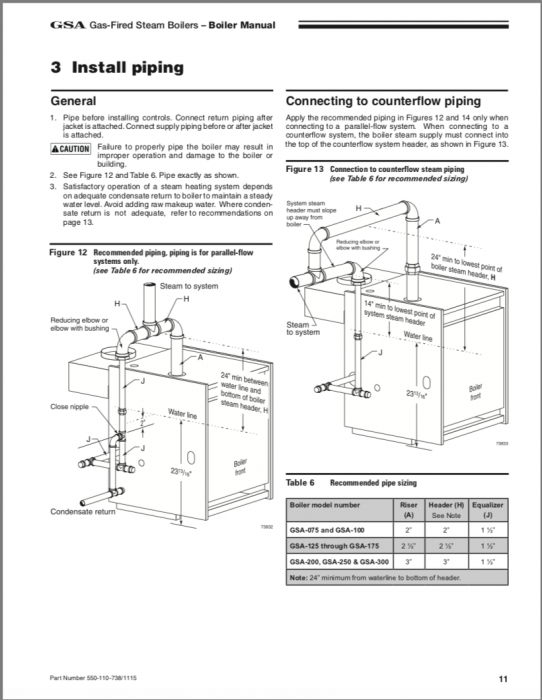
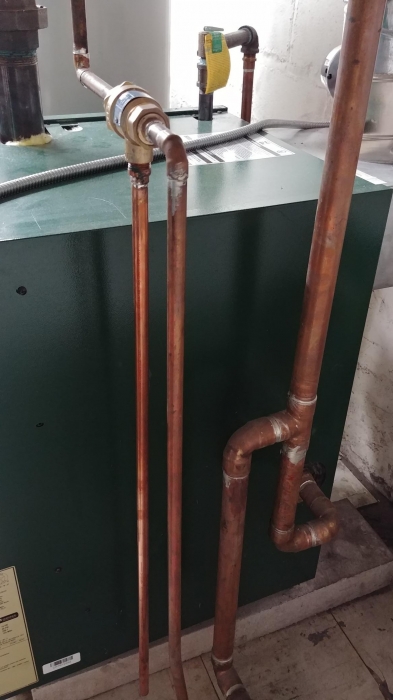
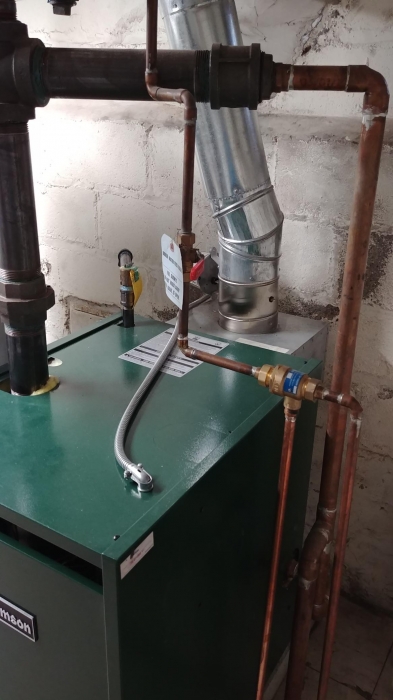










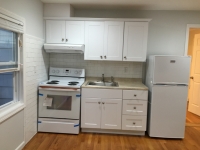

Drop headers. Nice install, MP.